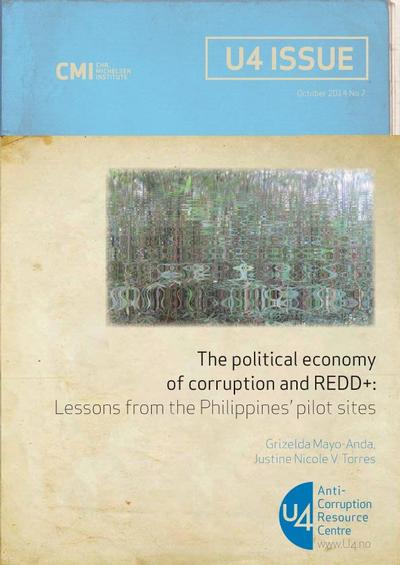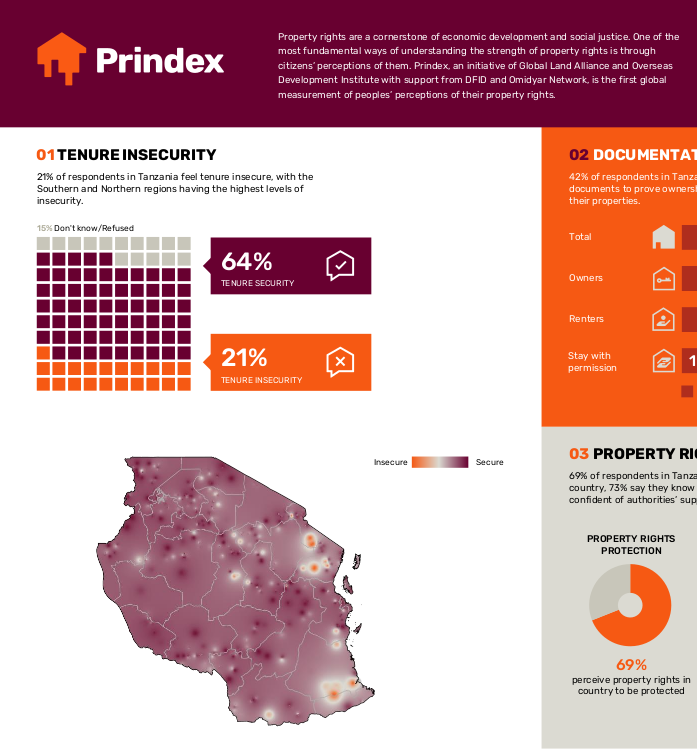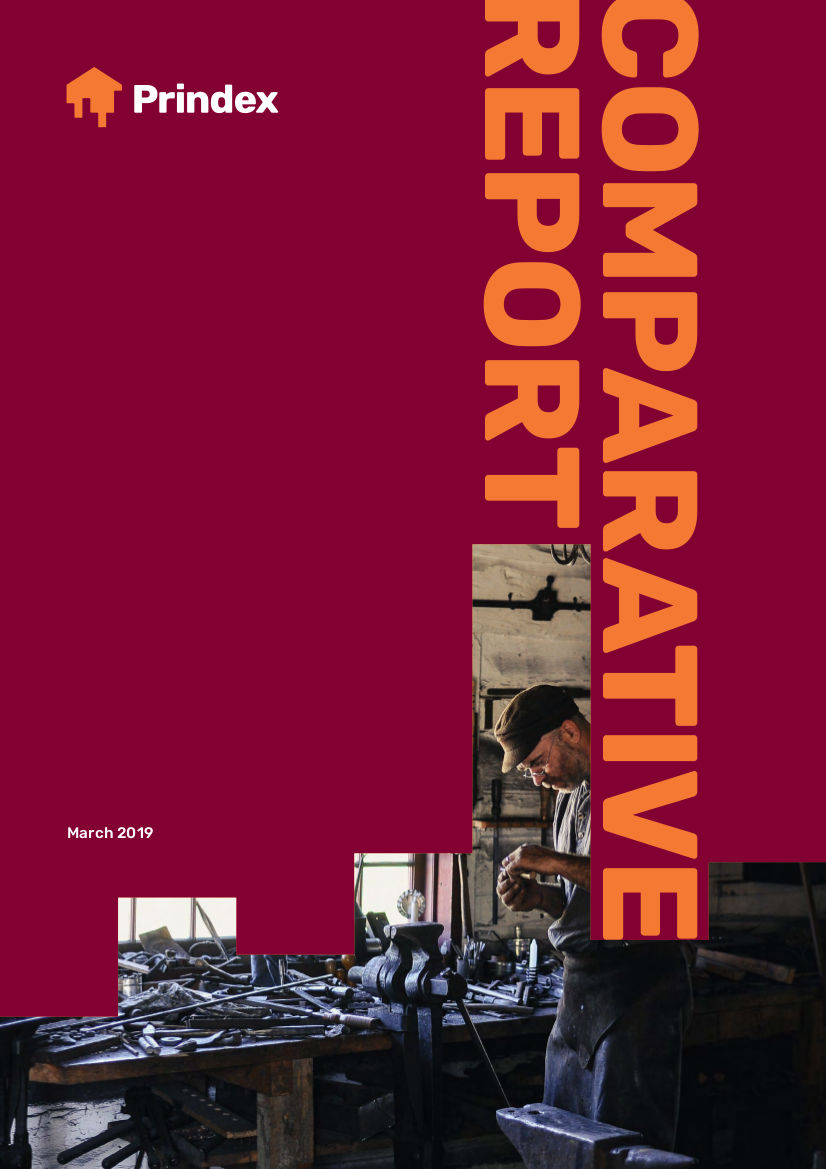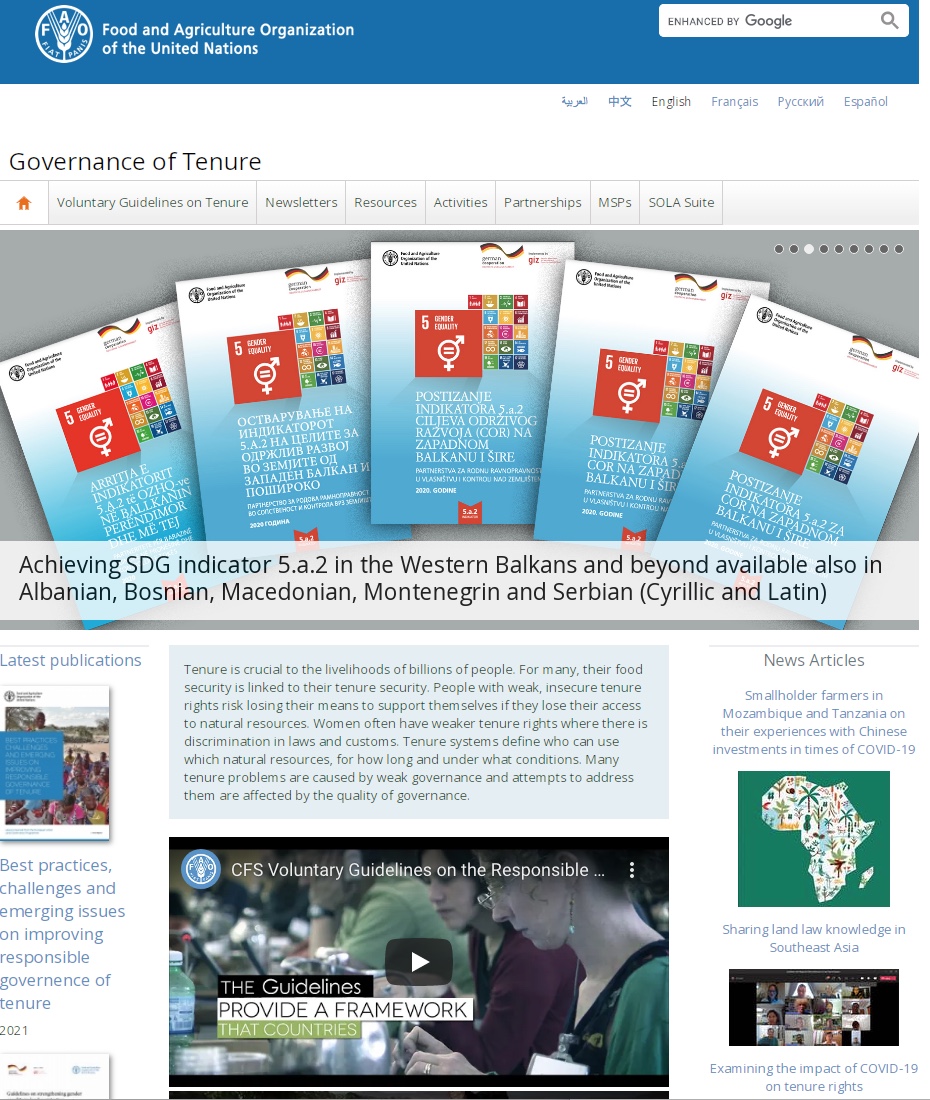tenure foncière
AGROVOC URI:
Angola and informal land tenure arrangements
This case study draws on research that investigated the extensive informal land market in Luanda, Angola. It examines how urban land is transacted and the mechanisms by which it is secured and regulated. The case study is based on research undertaken by
Di bawah payung (hukum) yang bocor: Hikmah dari Pengelolaan Kolaboratif TAHURA Nipa-Nipa
The political economy of corruption and REDD+: Lessons from the Philippines’ pilot sites
Corruption is a continuing feature of the Philippines’ natural resource sectors. Given keen interest in the country’s REDD+ potential, it is useful to consider corruption risks related to REDD+ from a political economy perspective. This U4 Issue draws on fieldwork from two REDD+ pilot sites to assess current governance and anti-corruption safeguards related to benefit-sharing, land tenure rights for indigenous peoples, and private sector involvement. Many anti-corruption actions are in place in the pilot sites, but they are weakly embedded in social relations at the local level.
Ethiopia: Overview of corruption in land administration
mproving land governance is key in assuring that land resources can be enjoyed by all parts of the population. Donors can play an important role in combatting corruption in land administration and building a well-functioning land administration by both supporting domestic government efforts as well as engaging in international and multi-country initiatives. However, donors are advised by experts and civil society organisations to be mindful of the possible impact of their interventions on issues of land grabbing and forced relocations.
Assessing the costs of tenure risks to agribusinesses - Report appendices
These appendices refer to the summary report Assessing the costs of tenure risks to agribusinesses. The report is a product of the Quantifying Tenure Risk (QTR) initiative, a joint research programme conducted by the ODI and TMP Systems and funded by the UK Government.
18 Country Infographics (Prindex)
Wave 2 country infographics in one document. Countries include: Benin, Bolivia, Cambodia, Colombia, Ghana, Indonesia, Jordan, Kenya, Malawi, Mexico, Morocco, Niger, Nigeria, Tanzania, Tunisia, Uganda, United Kingdom and Vietnam
Prindex Comparative Report, March 2019
Property rights are a cornerstone of economic development and social justice. A fundamental way of understanding the strength of property rights is through citizens' perceptions of them. Yet perceptions of tenure security have never been collected at a global scale.
Global perceptions of urban land tenure security report
A deeper look at what the results of the 33 wave 1 and 2 countries show about urban land tenure security. This report compliments the Prindex Comparative Report by focusing on a specific aspect of land and tenure insecurity.
Women's perceptions of tenure security
This report uses household-level data from 33, mostly developing, countries to analyse perceptions of tenure insecurity among women. We test two hypotheses: (1) that women feel more insecure than men; and (2) that increasing statutory protections for women, for instance by issuing joint named titles or making inheritance law more gender equal, increases de facto tenure security.
VGGT: Governance of Tenure
Tenure is crucial to the livelihoods of billions of people. For many, their food security is linked to their tenure security. People with weak, insecure tenure rights risk losing their means to support themselves if they lose their access to natural resources. Women often have weaker tenure rights where there is discrimination in laws and customs. Tenure systems define who can use which natural resources, for how long and under what conditions. Many tenure problems are caused by weak governance and attempts to address them are affected by the quality of governance.
The VGGT as a Tool for Improving Access to Land and Responsible Management of Natural Resources
We must agree as a nation, that several mistakes have been made in our land deals in recent years. We were stampeding in the wrong direction without adequately consulting beneficiaries i.e. those who are directly affected, those individuals and groups who suffer if anything goes wrong. They are also seen but not heard i.e. the voiceless and marginalized living in the rural areas.












